#Erasing The Negro
Text
0 notes
Text

Soy ese
#calamardo#mierda = mierda#memes#shitpost#meme de mierda#meme podrido#López#los padrinos magicos#bob esponja#mano#mono#negros de mierda#pou#iphone#como tan muchacho#pen#eraser#penraser#el amarillo es feo
3 notes
·
View notes
Note
No this fandom is actually insane
Do people think it’s ok to write “he was teaching her how to bathe”?????? I’m honestly scared to go read the post that they were talking about. The lengths that these people will go to just to prove that dettles never happened
Read at your own risk.
The person who wrote that is actually Black(or so they claim), but is willing to throw Black characters and Black fans under the bus and promote negative stereotypes about us for their mostly (racist) followers in defense of a racist characters desirability.
Sir/ma’am, if you are reading this, get some self respect. I’m actually embarrassed for you cause this shit is actually pathetic. You’re better than this.
Case in point they wrote this crap a while back with 100% sincerity:
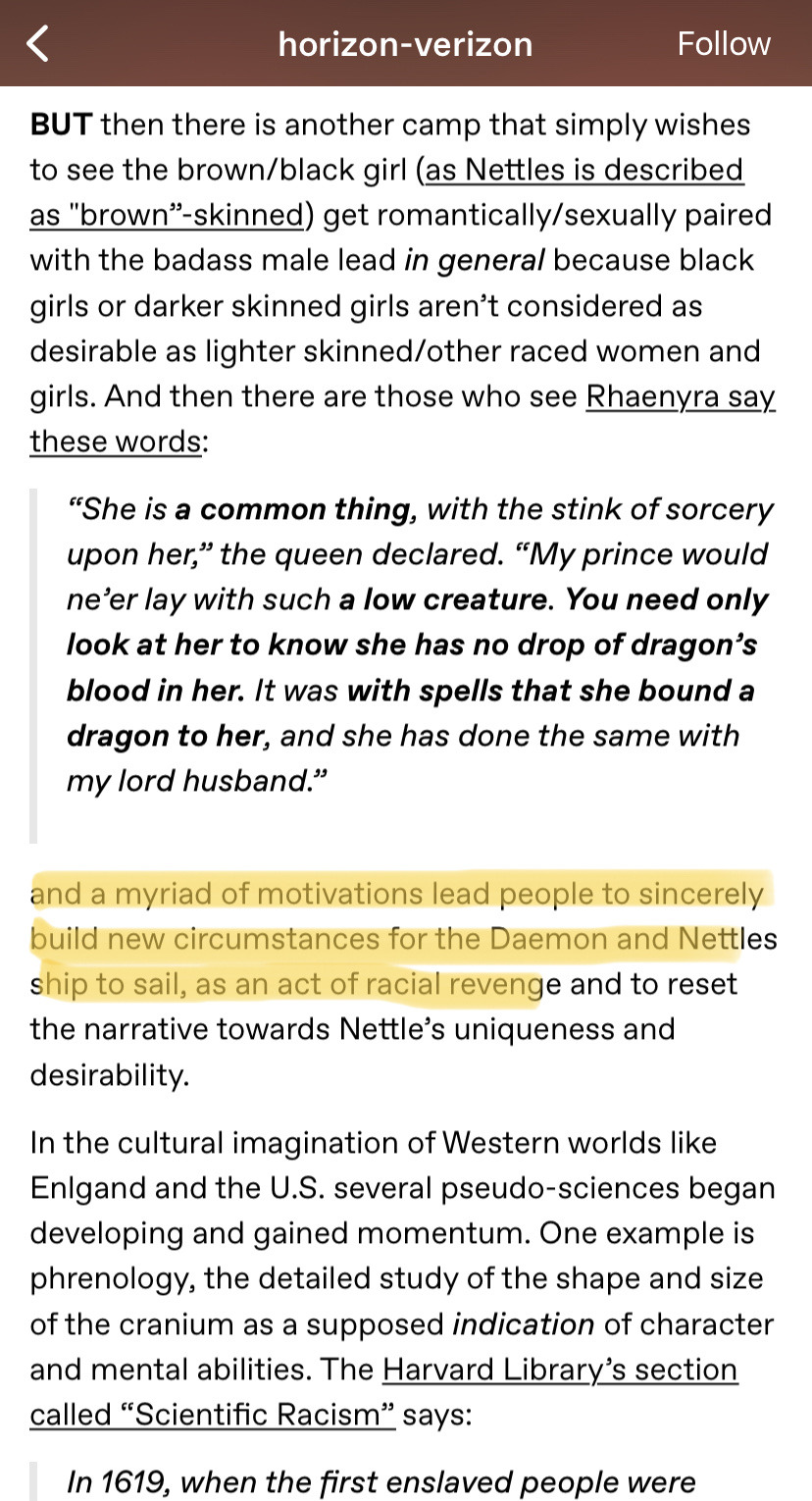
(I should also note that I actually had a run in with them about a year and some change ago and they threatened to block me after I asked them if Corlys bathing with Rhaenyra would be normal father daughter figure bonding time so I blocked them first😊).
Like you don’t have to like Dettles, but when you are pushing harmful ideology and stereotypes (Black people are so stupid/dirty that we need the white mans help to civilize us) as a way to discredit them and make those who ship it look like angry Black women jealous of the poor helpless white woman and her stans, you’ve gone too far.
Let’s keep in mind that this poor helpless white woman was actively trying to kill a Black girl for a crime she claims she didn’t commit and that despite claiming that Nettles definitely didn’t sleep with Daemon her stans spazz out everytime you mention her name and actively want her cut from the show.
Or how about the fact that these same stans actively stalk and harass Dettles shippers whose only crime has been pointing out y’all’s bullshit.
Let’s keep in mind all of this shall we:
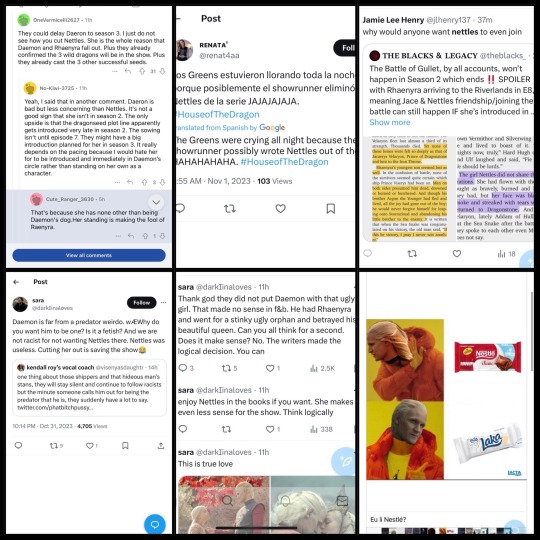
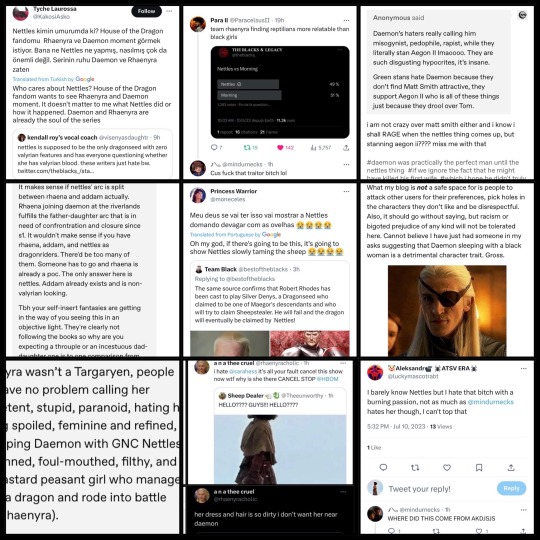
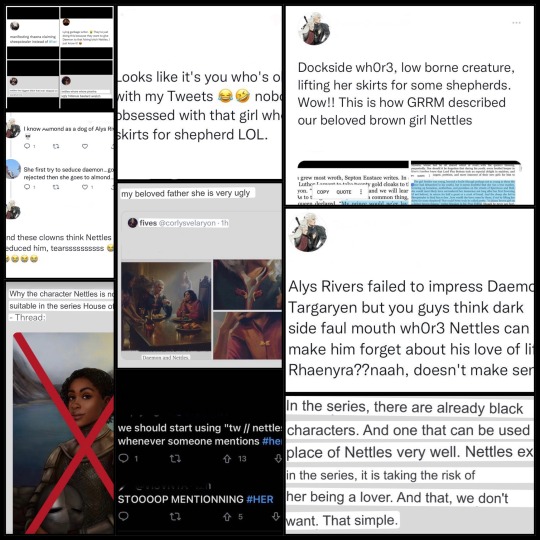
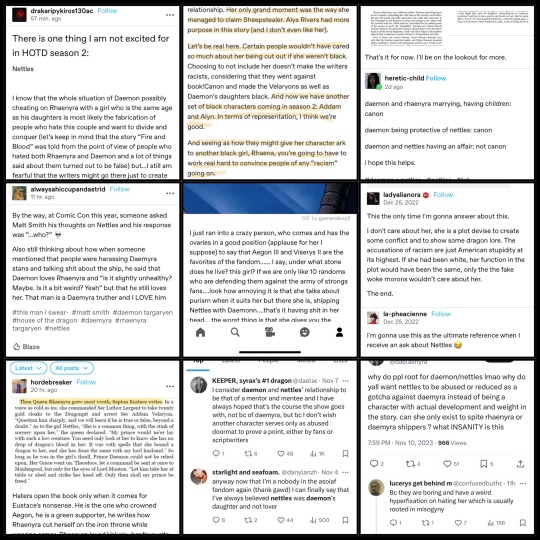
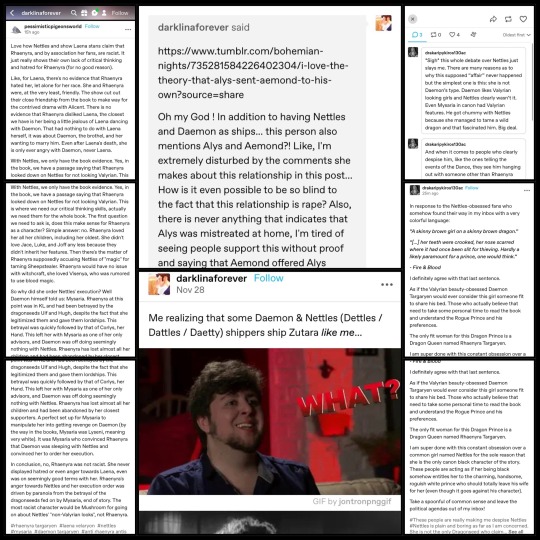
So who is actually jealous of who here? Who in this scenario wants racial revenge?* Who is the problem in this hellhole of a fandom?
Is it the people merely pointing out Nettles importance to the Dance and Daemon’s arc or the people who hurl racial insults and stereotypes? The people who want her erased from the narrative in its entirety cause she disrupts the status quo?
(The fact that someone would even fix their mouth to say that when Black people have been beaten, raped, enslaved, terrorized, tortured, disenfranchised, abused, subjected, and not even given common decency and respect for centuries by these people. If we wanted racial revenge it damn sure wouldn’t be off the back of a fucking fictional character).
The fact that they can’t see Nettles value and only see her as some irrelevant Black girl and reduce people liking her down to a gotcha/“woke” moment is fandom misogynoir in action.
They forget that she comes from nothing, claims a dragon, has a prince willing to give his life for her(six men or sixty remember that since y’all claim to be capable of reading🙃), survives the Dance and becomes a firewitch worshipped by a group of people, because they don’t want to acknowledge her importance.
It makes them uncomfortable to do so because she doesn’t look like them, but people like I’m not like those other Negros cover up for them so that when they are called out for it they can go see this n-I mean this Black person agrees with me.
Imagine being this butt hurt about a fictional character that you can’t even leave your racism or tap dancing at the door for five seconds.
Nettles doesn’t fit the mold, but that’s the point of her story.
They can recognize maester propaganda and scream about feminism when it comes to their white faves, but when it comes to the Black girl who is actively being stereotyped and maligned for her gender, race, and social standing in the source material they believe it no questions asked?
Again, what does it say about you that you are so willing to believe that a Black girl who was clever enough to claim a wild dragon doesn’t know how to bathe herself? What does it say about you that you think Daemon would never touch her with a ten foot pole just because she’s Black?
What does it say about you don’t want her on the show because of her race? What does it say about you that a fictional character who just so happens to be Black has you worked up into a tizzy.
Y’all claim to be for women(real or fictional), but in reality you only care about the women who look like you and shit on women you see as beneath you. Women who you think are a threat to the status quo. You’re no better than the men who oppress you.

#bnask#bnasks#this is longer than I wanted but black people and black characters aren’t the problem here#nettles#anti daemyra stans#anti rhaenyra stans#full of bullshit#hotd fandom misogynoir#hotd fandom bs
48 notes
·
View notes
Text
digital drawing made with mouse Trust utilising right hand and fingers with commands sent by the cerebral organ, ASUS monitor, Windows 10 Home Edition version 22H2 with 4,00 GB (3,87 GB utilizzabile) RAM, Sistema operativo a 64 bit, processore basato su x64 on user bignus scrunkly, john drusilla. microsoft paint. tools: pencil, paint bucket, eraser, transparency on. sizes: 3px, 2px, 1px , size 39,1 KB (40.132 byte), 40,0 KB (40.960 byte) on disk. created mercoledì 13 marzo 2024, 18:35:38 last modified mercoledì 13 marzo 2024, 20:13:40 last access Oggi 14 marzo 2024, 2 minuti fa. started 18:35 pm posted on www.tumblr.com on @sleep-nurse at 20:18 pm. image size 530 x 784, pixels 530 large, 784 width, file PNG. filename SIN DESEAR REENCONTRARNOS PUES NO SOMOS AMIGAS NI NUNCA LO SEREMOS PARA QUÉ LUCHAR POR TU PUESTO ESPERANDO UN POSIBLE SUEÑO LALULALU YEY YEY LALULALU YEY YEY NO ESPERES HACERTE DUEÑO DE ESTE NEGRO INTEN.png. italian artist, born 28 october, XX chromosomes
#sunflower rambles#yeah i did this again. yeah that was the filename#(they're lyrics from a vocaloid song called distant roads)#guess the drawing
36 notes
·
View notes
Text
but also bouncing off of this with ed, racialized masculinity, and rage (and i'm using that term specifically and for a reason) one of the other parts i think is fascinating is the way that rage is dangerous. not to an individual but to the oppressive structures surrounding us.
moc and anger is something that has always been policed and their image in media has to be crafted to fit a specific ideal. i'm taking a look at this through the lens of a biracial african-american, but if you look at the history of how black men are depicted in media you see a stark change occur upon the abolition of slavery. during slavery, the image of enslaved people that was promoted were those of a happy and content group of people. they were infantalized and portrayed as child-like and mentally deficient. you can see gone with the wind as an example of "the happy slave" myth. there's a great teen vogue article you can read if you wanna see more about the myth and how it relates to current pop culture. you can also read more about caricatures and the way they're still normalized currently with mascots of aunt jemima and uncle ben in this op-ed. but like all caricatures, they serve a purpose and fulfill a need of white supremacy. when it came to the happy slave, it was to push the idea that black people were content in slavery, that slavery was a civilizing process that was actually white people helping them, and that the only kind of work black people were capable of is physical labor, that any other kind would make them unhappy.
you can see similarities actually with the way māori men are spoken about and locating their use to physicality. when māori schools (in traditional western sense) were first opened, māori students scored just as well as the european lead schools. white people actually literally forced them to change their curriculum to be labor based completely because anything else was thought of as too complex for their simple minds or some bullshit like that. there's a great paper by brendan hokowhitu "The Death of Koro Paka: “Traditional” Mäori Patriarchy" that goes in depth about the white supremacist fetishization of māori physical labor.
in the same way that māori school curriculums were changed, the happy slave myth was a way for white supremacy to maintain a status quo that naturalized using poc for hard labor while patting themselves on the back for doing them a favor. for a long period of time in america, black rage and anger was erased. it was hidden from white eyes to shield them from having to face the reality of their brutalization. this is why frederick douglass was so revolutionary, btw. he pulled back the curtain on the myth, showing these caricatures as the shadow puppets they were, forcing white people to look at the brutality they were inflicting on real human beings.
the abolition of slavery changed this image. it's like it underwent a PR campaign overnight (which it kinda did) where suddenly pictures of slaves singing with huge grins were replaced with the image of animalistic, out of control, absolutely furious black men. part of this was from a white paranoia projecting their anxiety that black people will come at them for revenge from slavery. but the main reason for this was because of a caveat in abolition that still allowed slavery in the case of incarceration. (the 13th is a documentary on netflix that goes in depth on this!) you can't say that you're enslaving people because they like it and it makes them happy anymore, so what do you do? you change that narrative. it's not to keep them safe, it's to keep you safe especially your women safe. jim crow laws are rolled out, black men in the south are either incarcerated or lynched (the great migration from the south was fleeing white terrorism!) the myth of the angry, violent, savage negro takes form.
the point i'm making related to ed, beyond the history lesson, is related to that idea of white fear of moc's anger. when we talk about the anger of moc, we don't erase it. that's already happened before, and it was used against us. instead we lean into the idea of what makes white people so fucking shook at the idea of an angry moc.
a huge part of this that i think is very relevant to ed is the need for the state to control him. piracy is disruptive as fuck. a huge portion of pirates were ex-navy who left because they no longer wanted to put up with how fucking shitty the navy is to their men (no, it wasn't for radical reasons 😭) piracy also had a large amount of black people fleeing slavery too! one of the reasons black pirates were so scared of capture was because unlike their white counterparts, they wouldn't be hanged, they'd be brought to plantations. if you want to read an interesting article about piracy and race i'd suggest this one! it's untrue to say that piracy was an aracial utopia, but the history of it is complex and fascinating. (fun fact, blackbeard actually gets cited sometimes as one of the pirate ships that were a lot more equitable with race where the famous pirate black ceasar served upon his ship. this does not mean blackbeard wasn't horrifically racist. he still sold slaves and raped black women. do not mistake this for him being an antiracist legend)
pirates were able to operate outside of state control and this was terrifying. at times, they would work with the navy, also a fun fact. hornigold is famous for attacking spanish ships and leaving the british ones alone, meaning england just kinda looked the other way lmao.
but for ed (the character) i think this is what grants blackbeard so much power in a way that just plain old edward teach would never be able to harness. all the way up the chain, blackbeard is feared, and blackbeard is respected. the mere chance that blackbeard would be willing to take an act of grace and concede that power to the king is so lucrative that even an admirals subordinates are willing to go against him for it. to have blackbeard under english control is the greatest propaganda anyone could've offered them.
i think i said this yesterday, but as a powerless child being told that he can't have fine things, that's just how it is, it can feel like your only two options are either anger or despair. ed chose anger, and by doing so, ed chose survival. he can despair over his surroundings or he can get angry, say fuck this, join a pirate ship, and go ham. he can despair over his mother's abuse, or he can get angry. angry that she's treated like this. angry that his father is so cruel. angry that there is nobody who is willing to help them. angry enough to kill your father. not because ed is, at his core, a violent person, but because, at his core, he's a loving one who will kill off a part of himself if it means keeping his mother safe. ("when you kill, you die as well.")
and not just anger, but rage? it's powerful. it's the natural conclusion for having even the slightest awareness of your circumstances as a moc, and it's in the states best interests to quell that as much as possible. not to be like "malcolm x said" but also malcolm x said "Usually when people are sad, they don't do anything. They just cry over their condition. But when they get angry, they bring about a change." and i think there's something to that with ed, where he's trying to change the circumstances of his life to no longer be a nobody. that anger has served him well over the last few decades, his path has scorched a legacy, but it's also burned him out on the way. something stede offers to him alongside retirement is the possibility that he may be able to let that go. doesn't have to hold onto that anger anymore and wield it like a weapon. maybe love can be enough?
and in this case, it doesn't work out for him. there's many reasons why, but a big one is that ed hasn't yet done the introspection necessary to move forward. he struggles with acknowledging his past (he frequently forgets his acts of cruelty) and although he may be ready to let that go, it's not so easy. it clings to him. also why i think izzy's role is so important and not just black and white villainy. what he and izzy had worked. for decades it served them both well. but now it doesn't anymore and ed wants to let that go, but it isn't that easy to sweep it under the rug and pretend it never happened. izzy is his reminder of that, good and bad.
i mentioned malcolm x earlier, and it feels worth it to bring up how much a disservice history does to his legacy where he's painted as angry with no other nuance. they called him the angriest negro in america. there's also a fascinating legacy within the black male community of attempting to claim him for black masculinity at the expense of others, but malcolm x was also a loving husband and father, and a huge proponent for self-love. his love was complex, and it was only after he began to start making connections globally and start advocating for a more nuanced approach of black radical politics that he was assassinated.
ed is angry, and in that anger is power, but it's also exhausting. he wasn't wrong that love and vulnerability is something that will heal him, but he also hadn't yet done the work of examining his own internalized self-hatred, despair, loneliness, and anger. he's not going to have a fairytale ending where stede swoops in and rescues him from the evils of piracy, but will need to dig deeper into his emotional roots and connect with that same complexity of love that figures like malcolm x embodied.
this will probably look different for ed though since there are māori practices specific to that self journey of healing. Te Whare Tapa Whā is a model of health and wellbeing that takes a holistic māori and indigenous approach to health that positions five tenets as necessary for one's health.
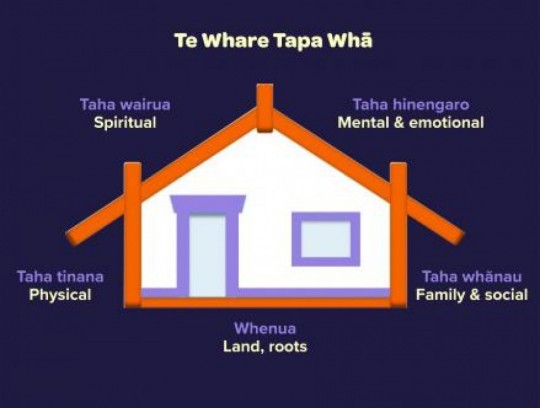
i don't feel like i can do it justice summarizing it since it's focused on five culture specific concepts, but here's a neat link!
this is something i try to keep in mind when writing ed and his healing. even if i'm not naming the model specifically, i think it's great to check back in on "is ed getting these five needs?"
i would highly recommend reading more about māori approaches to mental and physical health where the trauma of colonization is something that is brought to the forefront of needing to be addressed to heal. not only that, but how strong a backlash this receives from white groups because acknowledging that pain and history is dangerous to white supremacy.
but ed's relationship to emotion is something i really love about the show. rage and anger threatens the control of the british empire. it wreaks havoc across the seas and makes a mockery of their power. with ed though, when he's able to take control over the navy and for a brief moment becomes the most powerful person on that naval ship, is the act of grace. an action born from his love of another person. it feels so? hopeful and kind. and it wouldn't hit as hard if there weren't those moments of pain. after all, ed's desire for softness becomes all the more meaningful when we know he's use to only being treated roughly. that contrast is what keeps us feeling.
211 notes
·
View notes
Note
Wait
The Native Americans are fighting against the wokies?
It not surprising because how problematic they see things as. Fuck the recent Predator movie Prey did more to preserve the Comanche language it’s was also fully dub into it
But seriously I seen it in black media, notice how 95% of black media only focus on blm stuff or how many black historical figures are often erased by white wokies? Like black peopke can’t thrive in capitalism…please ignore that restaurant owner that inspire the Disney Princess Tiana
But back to the natives, yeah they would attack you guys. The left can barely understand Japanese POP CULTURE much as native historical stuff.
Good luck natives…tbh I think I know more about the Iroquois playing via playing a fictional historical game more than what leftist learn about native Americans in college.
But seriously I seen it in black media, notice how 95% of black media only focus on blm stuff or how many black historical figures are often erased by white wokies? Like black peopke can’t thrive in capitalism…please ignore that restaurant owner that inspire the Disney Princess Tiana
Admittedly it got shit on pretty hard in the Tulsa Race Riots, but "black wall street" was a thing and there were many thriving former slaves and children of former slaves at that point. Would have been nice if they'd managed to rebuild I will admit the cards were not just stacked against them, there was bulldozers pushing those cards too, few still managed.
Would have been nice if they could have been more able to defend themselves properly, trying to find NRA activity for southern Black folks post reconstruction/Jim crow era not much popping up other than.
Begin Tangent
This guy who just popped on to my radar.
Born in North Carolina in 1925, Williams’ experience mirrors that of many African-Americans of his generation. He moved to Detroit as part of the Second Great Migration, where he was privy to race rioting over jobs. He served in the then-segregated United States Marine Corps for a year and a half after being drafted in 1944. Upon returning to his North Carolina hometown, Williams found a moribund chapter of the NAACP. With only six members and little opposition, he used his USMC training to commandeer the local branch and turn it in a decidedly more military direction. The local chapter soon had over 200 members under Williams’ leadership. If nothing else, his leadership was effective at building the movement from the ground up.
An early incident is particularly instructive in how effective these new tactics were. The KKK was very active in Monroe, with an estimated 7,500 members in a town of 12,000. After hearing rumors that the Klan intended to attack NAACP chapter Vice President Dr. Albert Perry’s house, Williams and members of the Black Armed Guard surrounded the doctor’s house with sandbags and showed up with rifles. Klansman fired on the house from a moving vehicle and the Guard returned fire. Soon after, the Klan required a special permit from the city’s police chief to meet. One incident of self-defense did more to move the goalposts than all previous legislative pressure had.
Monroe’s Black Armed Guard wasn’t a subsidiary of the Communist Party, nor an independent organization like the Black Panther Party that would use similar tactics of arming their members later. In fact, “Black Armed Guard” was nothing more than a fancy name for an officially chartered National Rifle Association chapter.
He got a bit more militant later on, I will blame a good deal of that on the fbi doing what the fbi did to black people that stood up for other black people.
Not gonna call him a hero just yet because I haven't looked far enough into him to have a full picture, but this stuff is pretty damn heroic.
Remember gun control has frequently been used as a tool to keep minorities in check, and will continue to be used as so until more people put their foot down.
End tangent
__________________
Ya we went over this before with Aunt Jemima and Uncle Ben among others, removing minority representation in order to not offend white leftists who will just find something else to be offended about anyhow so just please ignore them and ask the people you're supposedly doing it for, I will say I'm glad that the "latinx" debate is over, only took most of Latin America and the royal Spanish society both saying it's stupid and insulting to get it killed.
Also don't try to turn it around on white people because
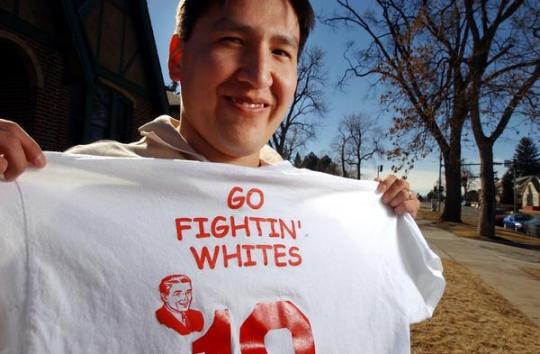
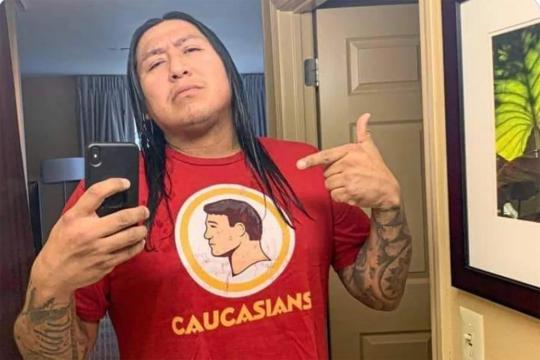


_____________________
We eat this shit up, fighting whites one went on sale, sold out really fast and the money went to a scholarship program for indigenous students I think, it's in the link and they should make them again if you ask me.
19 notes
·
View notes
Text
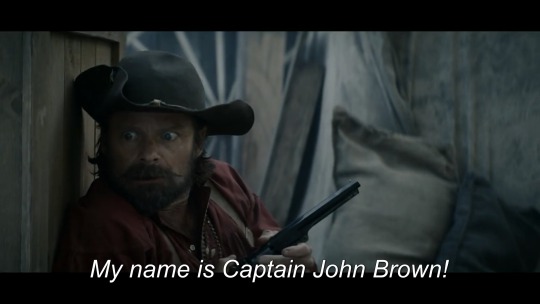
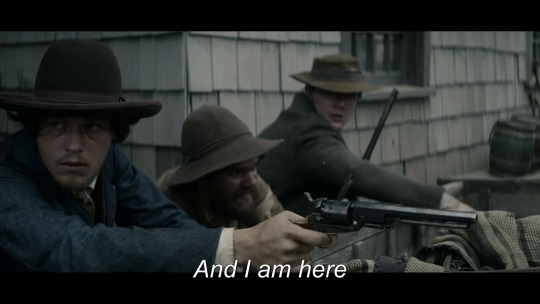
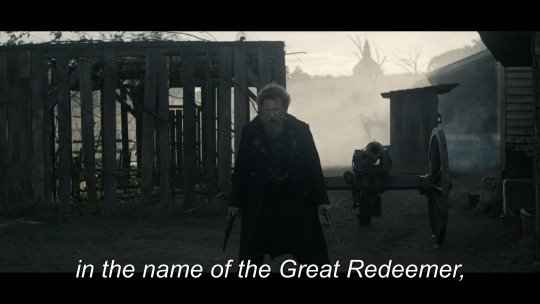



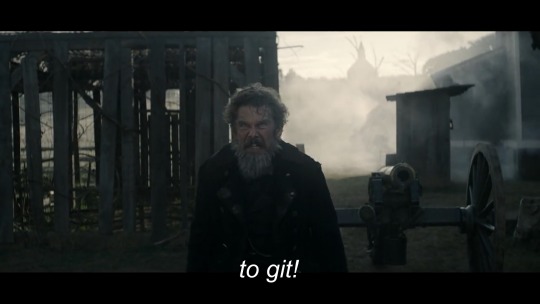

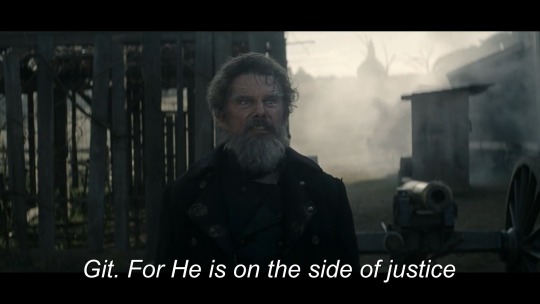
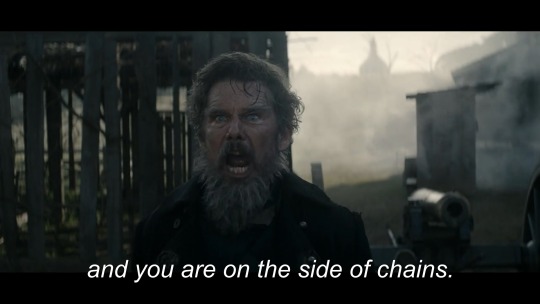
'The Good Lord Bird', Episode 2. Ethan Hawke playing John Brown in an adaptation of the 2013 novel by James McBride "about Henry Shackleford, an enslaved person, who unites with John Brown in Brown's abolitionist mission."
Some context: the story takes place during the 'Bleeding Kansas' conflict, which was basically a state-level civil war that took place between 1854 to 1860 and was a precursor to the country's Civil War over slavery.
::Brief, slightly unfocused rant begins::
Without getting into a deep dive into American history or the legacy of John Brown, I will say that the contemporary American Rights reactionary measures to erase the knowledge and the teaching of America's history in favor of a truncated—and some might say imaginary—accounting of America's past in order to "protect white children from feeling bad" about the history they've inherited is just another iteration of the very white supremacist philosophy they deny this country was founded on. It also speaks to who they identify and empathize with, consciously or unconsciously, whenever American history is discussed. It never seems to be the abolitionists or people like James Brown who gave their lives to the pursuit of destroying the institution of slavery (and it's certainly never the enslaved themselves). Instead, they choose to center on notions like "guilt" and "fault", often denying that the abomination of institutional slavery has any material relation to how contemporary American society is constituted and that a proper accounting of the legacy of that abomination is unnecessary, even (somehow) "detrimental" (and, even more improbably, a racist act itself aimed against white Americans).
I say fuck all that.
We all live in the failed echo of Reconstruction, an opportunity in American history that could have re-shaped the country for the better, an opportunity that was squandered and, ultimately, destroyed by the same reactionary forces denouncing how we discuss America's history today (Note: for a recent exploration of this I suggest Heather Cox Richardson's book 'How the South Won the Civil War').
The contemporary American Right's continued assertions that the history of slavery isn't entangled into every aspect of American history—it's founding, it's growth, it's prosperity and how it's politics is conducted—serves to protect the mythology of "American exceptionalism", a myth to which they are committed (they've even revived the notion, introduced by the Columbia historian Ulrich Bonnell Phillips in his 1918 book 'American Negro Slavery' that slavery was "beneficial" to those enslaved and that, "at the time" slavery was "no big deal.")
Again, fuck all that.
::Brief, slightly unfocused rant ends::
Whatever flaws John Brown carried with him in life, his moral opposition to slavery and his willingness to act on that belief was commendable. In the words of Frederick Douglass on John Brown, "His zeal in the cause of my race was far greater than mine — it was as the burning sun to my taper light — mine was bounded by time, his stretched away to the boundless shores of eternity. I could live for the slave, but he could die for him."
#The Good Lord Bird#James McBride#ethan hawke#american history#Heather Cox Richardson#bleeding kansas
25 notes
·
View notes
Note
Did you have any difficulty growing up as a mixed Afrolatina and relating to your African American side? I know most of my friends had a hard time but was it different then than it is now?
Hol' up, hol' up, anon! I'm not sure of how you came to this, but I am not mixed, I am not biracial, I am not ethnically ambiguous, I am not a "5 percenter"....I AM BLACK! I may be a little light-skinnedededed 🥴🤣, but, like many light-skinned Blacks, I don't know, nor do I care where my fair complexion comes from. I am a mono-racial Black woman. I was born in New York City to two Black Nicaraguan parents, both of whom speak Spanish as a first language, they both have Caribbean accents and Jewish last names. And even though I was born in this country, I don't actually identify as "African-American" mainly because I don't feel like the term fully describes who I am (to me, it erases my Latinaness and my Caribbeaness). It also represents a culture, heritage, history, and understanding that I don't have. I mean, it ain't like I can say I got family and roots in Mississippi and grew up on collard greens and cornbread. I also feel like a lot of people use this term to put ALL people of the African descent under the same umbrella: for instance, I once heard someone refer to Naomi Campbell as an "African-American" model, and I thought "No she ain't!" She is a Black British woman of Jamaican heritage. So, me personally, I just say I am Black, if people want to know more about me, they can just ask. But to answer your question, HELL NAH...I've never had a problem with my Blackness...ever. I loooove being Black. I bask in it. I know a lot negroes that live past the Rio Grande do, and it's a damn shame, but that was not my experience. I'm very aware and proud of my Blackness. In fact, it was much easier, and honestly, more comfortable for me to gravitate toward people who look like me growing up (i.e. Black Americans). Mind you, even though my parents are Hispanics, I did not grow up speaking the language myself, I'd never been to the country until my teens, and of course I'm Black, so I didn't look like most of the Latinos I saw on TV (who all looked Italian to me). To be honest, it was harder to accept that I was Latina because I just didn't fit into what most people think of Latinos. Sometimes I even felt embarrassed of my Hispanic heritage. I mean, I felt Hispanic around my family and inside my own home, but once I left those 4 walls, I did at times feel like an outsider because people didn't understand that Black folks like me existed.
#black identity#black people#black culture#afro latina#black latina#black nicaraguan#latina#hispanic#nicarguan#anon#ask#sbrown82
11 notes
·
View notes
Text
imagine erasing black features just to get ratioed by a negro. tragic
28 notes
·
View notes
Text
The lost community of Lightning
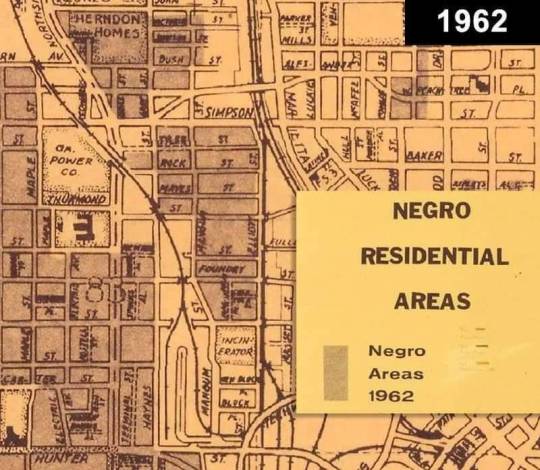

A 1962 map from the Atlanta-Fulton Planning Board shows where Black households were located in the city, as a way of mapping what was termed as "negro expansion."
You can find similar maps throughout the GSU Digital Collections. Planners kept track of where Black communities were located -- especially low-income ones -- often to peg a place as being ripe for "renewal," which appears to have been code for: "erase this place and fill it with something that appeals to white suburbanites."
The area immediately to the left of the map legend was the location of a neighborhood called Lightning, which was partially demolished to make way for the Georgia World Congress Center, and the remaining pieces were demolished prior to construction of the Georgia Dome in the 1980s.
See the second image for a look at this same area now. The land on the north side of the Mercedes-Benz stadium is where Lightning stood.
The community might have gone undocumented and forgotten if not for the careful work of an Atlanta journalist.
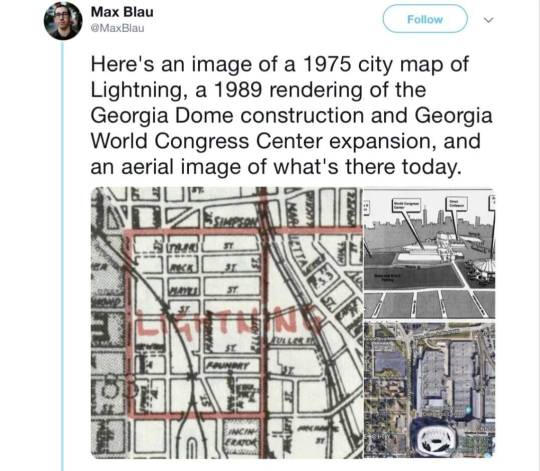
In 2017, local writer Max Blau did a deep investigation of the history of the neighborhood which was published in Bitter Southerner.
In the wake of that investigation, Councilmember Michael Julian Bond wrote an ordinance for creating a commission to develop some kind of memorial for Lightning.
I've sent an email to his office to find out if anything came of that. From my own brief search, I couldn't find any evidence in Council records that the commission ever met and produced anything, but hopefully they did.
I'll update with whatever I find out from Bond. I think there absolutely should be something that recognizes that people lived here. And I'd like to see a lot of other recognition of where people lived before neighborhoods were demolished for various urban renewal projects in Atlanta.
Source for 1962 map: atlmaps.org
52 notes
·
View notes
Text
martial law files (IMPORTANT)
i'm sorry if you found this on tags that you expect for content to show up, but i'm dropping here an important part of history in the Philippines that people from other countries need to know.
the Marcos family want to get rid of this information, TO ERASE THIS PART OF HISTORY. they're planning (maybe even starting already) to revise history books to get rid of the cruel past that their family caused to the people of their own country.
as a Filipino especially from Negros Occidental where they purged the sugarcane industry, leaving everyone in the province starving to death, I WILL NOT LET THE PAIN OF MY ANCESTORS BE FORGOTTEN.
MARTIAL LAW FILES
a lot of files are already missing from when i first checked. but i'm trying to spread what is left of it more on social media platforms that are more for western consumption.
i will not let this part of history be forgotten.
feel free to ask for translations of some parts, because some of the files are in Tagalog.
#halalan2022#philippine elections#never again#martial law#snk#shingeki no kyojin#not sfw#jjk x reader#bnha imagines#attack on titan smut#jjk smut#bnha smut#anime characters#character x you#miraculous fandom#genshin impact x reader#genshin impact#tears of themis#mcu imagine#character x reader#haikyuu!!#x reader#i need more tags#pls boost#pls share#pls pls pls#philippines#2022 elections
272 notes
·
View notes
Text
https://www.reuters.com/investigates/special-report/usa-slavery-families/
Heirs of Power

The forebears of three members of Congress regained – and passed forward – wealth and power their families lost when slavery was abolished. Their success shows how the Southern elite exploited Black Americans in new ways.
About a month after the Civil War began, a slaveholding ancestor of current U.S. Congressman French Hill seemed confident about the future. “Lincoln can’t starve me out unless he takes my land and negros,” plantation owner Creed Taylor wrote to a relative.
By the time the war ended in 1865, President Abraham Lincoln had freed the enslaved, including at least 70 who worked Taylor’s cotton fields here. But Taylor’s family found a path back to prosperity that didn’t look much different from the way he had first made his fortune.

In May 1861, Creed Taylor wrote to his brother to explain his support of secession. Via Arkansas State Archives
Taylor still owned at least 1,500 acres of farmland. By the turn of the 20th century, his grandson oversaw a sprawling cotton operation that would eventually grow to more than 10 times the size of Taylor’s farm. And for years, the fields would be worked once again by Black people who didn’t have a choice.
Emancipation dealt many slaveholders a staggering economic blow, wiping out vast amounts of wealth across the South. In 1870, five years after the war ended and about 4 million Black people were freed from slavery, the states that once made up the Confederacy were enduring one of the largest wealth shocks in American history. The reported wealth of Southerners dropped by $4.3 billion, or about 65%, from a decade earlier, a Reuters analysis found. Put another way, war and emancipation appear to have erased about two-thirds of wealth in the South.
For this story, Reuters traveled to Arkansas and Georgia, and interviewed more than 20 experts on Southern history and economics. Journalists also used thousands of pages of newspaper accounts, census documents, court records, history books, family papers and other material to construct this story. The data analysis of the wealth shock in the South is based on a comparison of 1860 and 1870 census data from IPUMS.
Those who lost the most, like Congressman Hill’s direct ancestor, were the largest enslavers. They also had the clearest path to rebuilding – often by replicating elements of the slavery economy and reinstituting feudal systems that embraced white supremacy.
The Black people who had been enslaved emerged with far less. Racial violence and voting laws locked them out of political power. Schooling was limited, leaving most unable to read and write. The federal government let former slaveholders keep their land, and the newly freed were afforded few paths to prosper – leaving them once again at the mercy of the white elite.
In a report published in June, Reuters found that a fifth of the U.S. political elite – congressional members, living presidents, Supreme Court justices and governors – are direct descendants of slaveholders in America. Among the richest just before the Civil War were the forebears of three members of today’s Congress: Hill, Representative Dina Titus and Senator John Kennedy. Each had a slaveholding ancestor who was among the wealthiest 1% of Americans in 1860, Reuters found. By 1870, each of those forebears had lost between 60% and 90% of their wealth.
What remained, however, was land – and key social and political connections that, a 2021 study concludes, proved critical to the financial recoveries of the largest slaveholding families.
Such connections, Reuters found, helped the ancestors of Hill, Titus and Kennedy. In each family lineage, for example, at least two slaveholders or their descendants married descendants of other enslavers, pooling their assets and increasing their influence as they shaped the South’s postwar economy.
“The power of enslavers came not simply from their ownership of property, but from their ability to wield political power and from their clans,” said Steven Hahn, a professor of history at New York University who studies slavery, capitalism and the U.S. South.
Hahn said he believes that some lawmakers in both political parties benefit from advantages that stem from the slaveholdings of their ancestors. “And to this day,” he said, “their power and wealth can’t be dissociated from that.” Representative French Hill, Republican from Arkansas Representative Dina Titus, Democrat from Nevada Senator John Kennedy, Republican from Louisiana
In examining the lineages of Hill, Titus and Kennedy, Reuters focused on how their forebears reclaimed family wealth and power in the decades following the post-war Reconstruction era. It was a time when the old South sought to reassert itself socially and politically, stripping away the rights Black people had gained during Reconstruction before federal troops withdrew from the region in 1877.

Hill’s great-great-grandfather leased prisoners, most of them Black, to pick cotton and handle other farmwork for pennies a day in Arkansas. Unlike the people Hill’s ancestors enslaved, the prisoners represented labor without substantial investment.

A forebear of Titus married the daughter of a former congressman and slaveholder, and became a regional power broker in politics and real estate. In an address to state lawmakers, he explained that “in Georgia, the white race intended to dominate the negro race and control the government of the state, no matter how large the negro majority,” according to a newspaper account at the time.

And Kennedy’s ancestors expanded the family’s Louisiana land holdings through marriage and inheritance, then used poor Black farmers to work the land. Family estate records and an interview with a descendant of one of those farmers suggest the family used both sharecropping and tenant farming, which effectively kept some of their Black neighbors in debt.
As Black people were denied basic rights, the strategies used by the ancestors of today’s political elites illustrate key facets of the legacy of slavery in America. Taken together, they make clear how the descendants of some of the largest former slaveholders regained prominence and wealth by subjugating Black people in new ways after 1865.
“At the moment of emancipation and the end of the Civil War, when there could have been a massive redistribution of wealth to the people whose forced labor had created it, that did not happen,” said Heather McGhee, author of The Sum of Us: What Racism Costs Everyone and How We Can Prosper Together. “Instead the plantation class reorganized itself and the laws to ensure continued privilege – and privilege built on the exploitation of Black labor.”
Determining how much of a family’s money today came from an ancestral slaveholder is exceedingly difficult. Fortunes made through chattel slavery – or through the abusive labor practices in the decades after emancipation – were lost, built upon or divided among multiple heirs over many generations.
But more than cash wealth was passed down. Slaveholding had enabled families to buy land and invest in other industries. It allowed access to top schools for their children, giving their descendants entry into prominent occupations. And it helped them foster relationships with other leading families, building connections that reinforced their economic interests, said Joshua Rosenbloom, an economist at Iowa State University who has studied wealth before and after the Civil War.
“At the moment of emancipation and the end of the Civil War, when there could have been a massive redistribution of wealth to the people whose forced labor had created it, that did not happen.”
While the formerly enslaved were “essentially turned loose without any assets and had to support themselves,” the wealth accrued through slaveholding provided a cushion for white families that allowed them “to suffer short-run losses” but continue to take risks, he said.
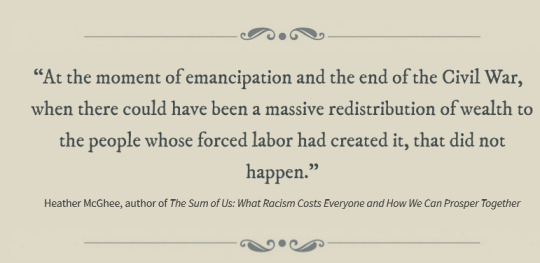
“We still have this notion of America as a land of opportunity,” Rosenbloom said. “Understanding the extent to which that’s true and the ways in which it’s constrained is central to understanding our own self-image and understanding how people succeed.”
In approaching the three lawmakers, Reuters asked about the ways their forebears regained their wealth and standing in the post-slavery South. “None of them bear any personal responsibility for the specific actions that their ancestor did,” said Douglas A. Blackmon, author of Slavery by Another Name: The Re-Enslavement of Black Americans from the Civil War to World War II. But in learning about the choices their forebears made, Blackmon said, the legislators should “consider what that history means.”
Neither Hill nor Kennedy commented specifically for this story. In June, Hill issued a statement for a previous Reuters story, calling slavery “a scourge” and saying “we as a nation must recognize our past, learn from it, and look to the future.” In 2019, Kennedy called slavery “reprehensible,” but noted: “I believe in personal responsibility, and I just don’t think someone today is responsible for what someone else did 150 years ago.”
For this article, Titus provided a statement: “Slavery is a deplorable part of our history, and I have no bonds with any long-dead relatives connected to it. We must not forget the cruelty visited upon Black Americans over generations as we commit to systemic reform that ensures equal rights for all. That principle has guided my personal life, professional career, and political record.”

The early childhood of John M. Gracie, an ancestor of U.S. Representative French Hill, was swaddled in the wealth produced by slavery. When Gracie was 4 years old, his father enslaved 11 people in New Gascony, Arkansas. Nearby, grandfather Creed Taylor enslaved 70. Combined, their estates would be worth as much as $119 million today – almost all of it in the value of their land and the Black men, women and children they listed as personal property.
After emancipation, the family retained its land. But who would work it? Gracie began experimenting with a variety of solutions after taking over from his grandfather in the 1880s, including using poor Black farmers and immigrant laborers from China.

But another option would prove lucrative, speeding the family’s path to greater prosperity and landholdings: leasing prisoners from the government.
Convict leasing involved paying the state or county for the use of prisoners, most of whom were Black. After Reconstruction ended, Southern legislatures enacted racist laws that diminished the rights of Black people and provided the pretext to jail them for petty transgressions. Often illiterate and struggling to make a living, they were ill-equipped to defend themselves in court or pay the fines that followed.
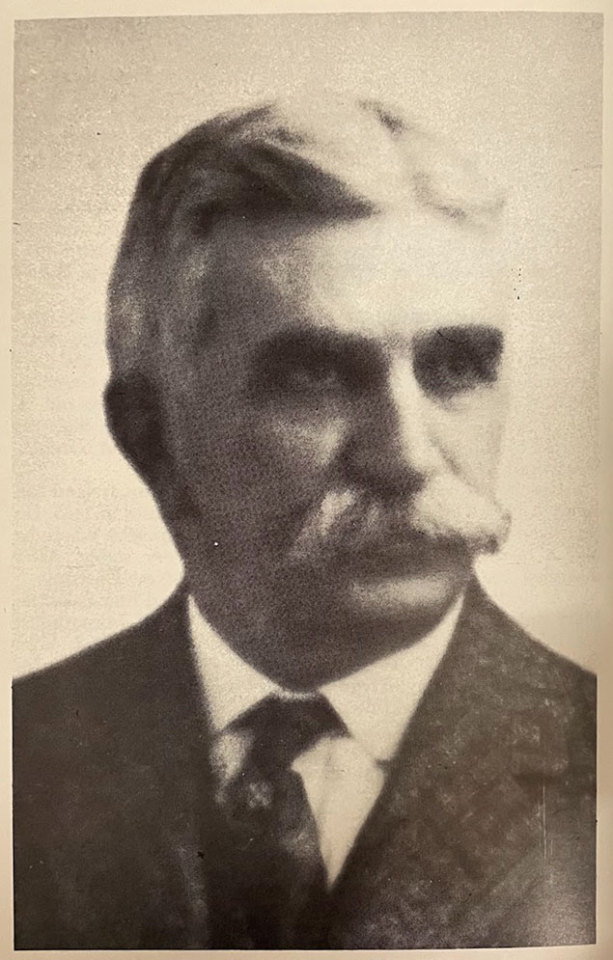
Cotton baron John M. Gracie, via The Jefferson County Historical Quarterly
Southern states used the system to address budget deficits and inadequate prison capacity after the Civil War, while providing a cheap and essentially disposable source of labor to the highest bidder.
“Convict leasing was a method of truly resurrecting something that looked almost exactly like the slavery that had existed before the Civil War,” said author Blackmon, who teaches at Georgia State University. “It was not typical for convicts to go back into the exact same kinds of plantation settings ... but Arkansas was a place where that did happen.”
Unlike purchasing the people Gracie’s ancestors enslaved, leasing prisoners didn’t require a substantial up-front investment for landowners. And if prisoners died doing the backbreaking work, others could quickly take their places.
Gracie signed contracts with local governments to use prisoners. They were housed on Gracie’s land, and the conditions were grim, according to newspaper accounts and government reports from the time. Men were whipped. Others died of heatstroke. One lost a foot to frostbite. At least a dozen prisoners, mostly Black men, lost their lives on Gracie land from 1890 to 1905, according to newspaper and state reports.
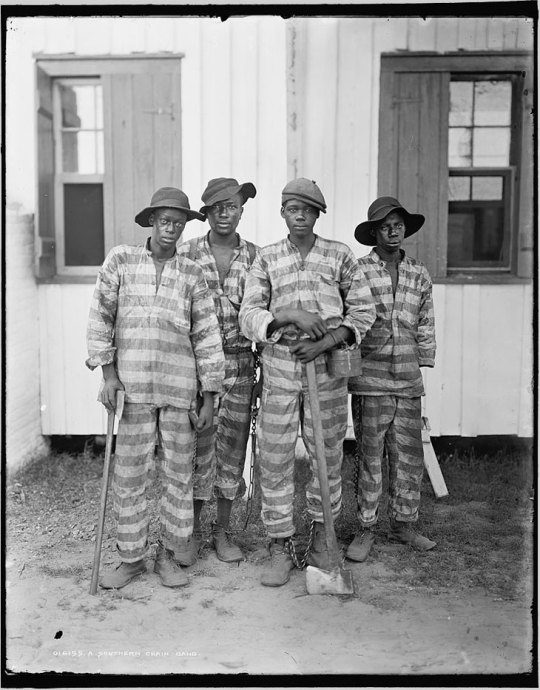
In 1888, for example, a state board reviewed a report by the penitentiary physician that examined the conditions at several prison labor camps. The report found 44 prisoners at a Gracie camp who, when not doing hard labor, were confined to a windowless pen measuring 20 feet by 20 feet. Ten years later, a Black man named Caesar Washington sued Gracie.
Washington had been pardoned by the governor of Arkansas, who noted his poor health. A petition presented by a government attorney mentioned, too, the fine and offense that put Washington on Gracie’s farm: $5 for “disturbing the peace by using profane and insulting language to a colored woman.”
In his lawsuit, Washington alleged that while serving on one of Gracie’s prison labor farms, he was “brutally beat, struck, whipped, kicked and maltreated.” The assaults were so bad, the 67-year-old shoemaker said, that he was left “wholly and permanently incapacitated from earning a living.”
Reuters could find no record showing how the suit against Gracie was resolved.
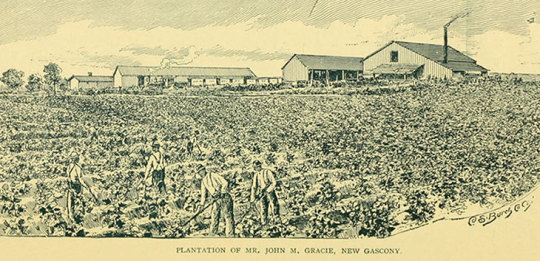
Amid similar allegations of mistreatment, Gracie thrived. He expanded the family’s farming operations, clearing thousands of acres of land around New Gascony and buying additional plantations near the Arkansas River. In 1908, news accounts said Gracie controlled 23,000 acres of land across multiple plantations and used as many as 250 prison laborers at a time.
Gracie’s precise profits are unclear. As of 1902, his contract with Pulaski County, for example, indicates he paid the local government 25 cents per day per prisoner, according to a newspaper account. Around the same time, the state of Arkansas’ own convict leasing operation, with a daily net cost of 27 cents per worker, produced a net profit of 48 cents – nearly twice as much as the cost of its labor.
After a 23-year run, Gracie ended his profitable business of using convict labor in 1909, as lawsuits and government investigations kept stacking up. In newspaper stories, Gracie had referred to the lawsuits by former prisoners as an “attempted hold up,” though he allowed that “it is impossible to handle a large number of convicts without sometimes resorting to somewhat extreme means in order to maintain discipline.”
But Gracie’s brutal practices didn’t affect his community standing. He was revered by white people in the Little Rock and Pine Bluff areas, where Gracie served as a senior executive for a bank and a railroad company. He supported local Catholic causes, helping to finance a school for Black children.
He and his family lived in Little Rock, in a Greek-revival mansion that he bought for as much as $7.6 million in today’s money. There, his wife and daughters threw parties for as many as 175 people, decorating with magnolia blossoms and Japanese lanterns.
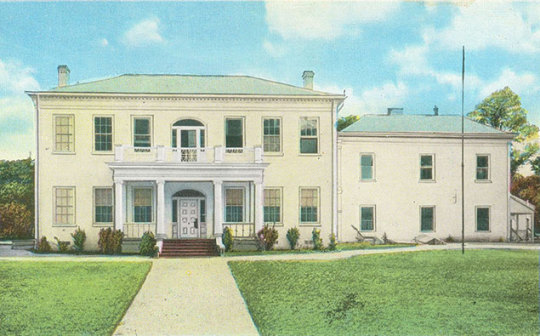
After he stopped using prisoners and Black tenant farmers, Gracie turned to Italian immigrants. But he soon soured on the Italian workers as “money mad” – they complained of debts they couldn’t work off and poor conditions, including holes in the floors of their cabins and rampant malaria. Many Italians left Gracie’s plantations. By 1918, several hundred Black tenant farmers once again worked his land, despite Gracie’s published comments years earlier in which he referred to Black laborers as “irresponsible, dishonest and very poor workmen” – a common racist trope.
His cotton empire began to crumble after prices crashed in 1920. Gracie would lose his farmland and sell the mansion in Little Rock. But in the lineage that leads to Congressman Hill, the family’s standing endured.
In 1924, Gracie’s granddaughter married another prominent Arkansan. Gracie died at the age of 76 in 1933 – the same year his granddaughter’s husband, James “Jay” Wilson Hill, established one of the first investment banking firms in the state.
Today, Gracie’s great-great-grandson is an accomplished member of Congress, representing Arkansas’ second congressional district since 2015. As a teenager, James French Hill worked summers at the family brokerage firm before attending Vanderbilt University. By his 30s, he was a U.S. Treasury Department official and a senior economic policy adviser to President George H.W. Bush.
In 1999, Hill helped found a Little Rock-based financial firm, Delta Trust & Banking Corp. Hill served as chairman and chief executive officer there.
Hill has shown a deep appreciation for history, describing himself as a ninth-generation Arkansan and serving as a commissioner for the Historic Arkansas Museum.
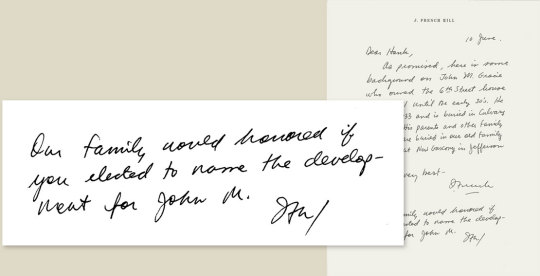
In 2011, when the former Gracie mansion was renovated with a loan from Hill’s Delta Trust bank, Hill wrote to the new owner. “Our family would (be) honored if you elected to name the development for John M,” the note read. It was.
In 2015, when Hill was sworn into Congress, he used a family Bible. It had been passed down from John M. Gracie’s father, a slaveholder.
Hill’s latest public financial disclosures show his net worth at between $10.3 million and $25.7 million, including his Little Rock residence. His holdings include a family investment vehicle with a name that echoes his family’s ancestral plantation: “New Gascony Company, LLC”.
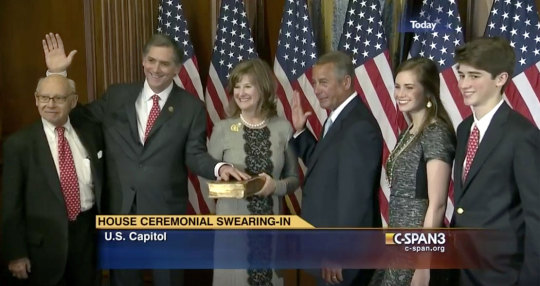
Powerbrokers and the Leisure Economy
In 1820, Francis Hopkins enslaved 183 people on his cotton plantation along the coast of Georgia. The son of a British naval officer, Hopkins also was a member of the state legislature. He is the great-great-great-great-grandfather of U.S. Representative Dina Titus – and the single largest slaveholder among the ancestors of America’s political elite identified by Reuters.
Titus, in her seventh term in Congress representing the state of Nevada, is the direct descendant of at least seven slaveholders, Reuters found. Five of those ancestors lived in Georgia, where Titus was born and raised.
After the Civil War, the son of Francis Hopkins reached out to the local branch of the Freedmen’s Bureau, the agency set up to assist the formerly enslaved during Reconstruction. Thomas S. Hopkins, who had also been a slaveholder, lodged a complaint, bureau records show. “The ‘Freedman’ on his plantation refuse to work,” it read, and “he wishes them removed.”
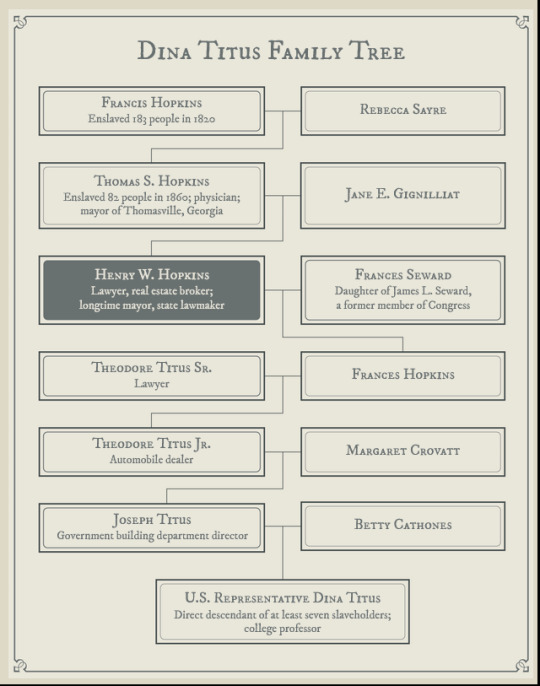
The message was a sign of things to come for the Hopkins family and the place they called home: Thomasville, a town in the deepest reaches of south Georgia.
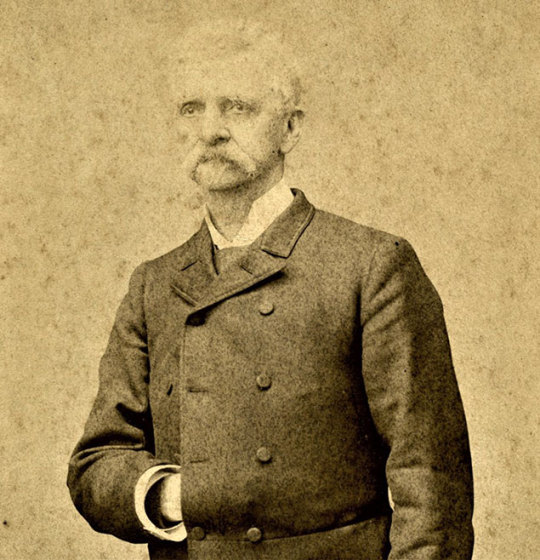
Thomas Spalding Hopkins, a physician, reimagined Thomasville as a place for those seeking relief from respiratory illnesses. Via Thomasville History Center
Many Southern landowners clung to farming, but this branch of the Hopkins family was largely forsaking agriculture. Thomas Hopkins was a physician, and by 1871 the mayor of Thomasville. Three years later, he presented a paper to the Medical Association of Georgia.
Dr. Hopkins contended that his town was the ideal place to recover from “consumption,” as tuberculosis was then called. In an 1882 letter published in the Atlanta Medical Register, he extolled the virtues of Thomasville’s “dryness of the climate” and the city’s distance from the Atlantic Ocean and the Gulf of Mexico, with their dangerous “saline vapor and moisture.”
His pitch, made through travel advertisements and testimonials to medical journals, effectively rebranded Thomasville as a destination for the ailing. The city was highlighted in a Harper’s magazine article in 1887, which described it alongside winter resorts that included the south of France, Switzerland and the Adirondacks.
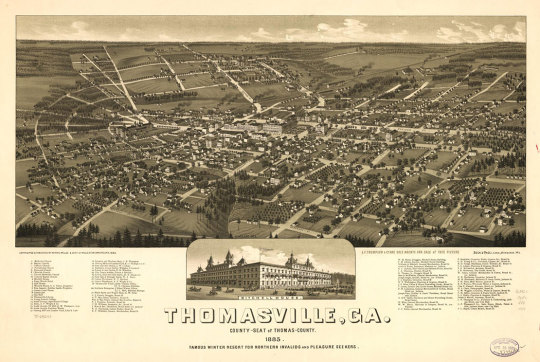
The son of Dr. Hopkins continued those efforts. But as Henry W. Hopkins himself became a prominent political figure, he used the family name and influence to launch an even greater transformation of Thomasville – one that in some ways capitalized on recreating elements of the antebellum South.
Often referred to as Judge Hopkins for one of the many offices he would hold, Henry married the daughter of a former U.S. congressman, who had also been a slaveholder. For parts of five decades that followed the end of Reconstruction, Judge Hopkins was one of the most influential men in the region.
From the mid-1880s through 1900, Hopkins spent nine terms as Thomasville’s mayor. When he wasn’t at city hall, he served in the state legislature – for 17 years between 1894 and 1926. Family papers reviewed by Reuters show Judge Hopkins traded favors with newspaper editors and politicians. He helped wealthy Northerners and Midwesterners, including Standard Oil heirs, acquire land, then hosted elaborate hunting trips. In the off-season, he often managed the plantations they bought.
In and around Thomasville, he built a social dynasty by brokering the sale of these plantations to monied outsiders, drawn to hunt quail and experience the old South.
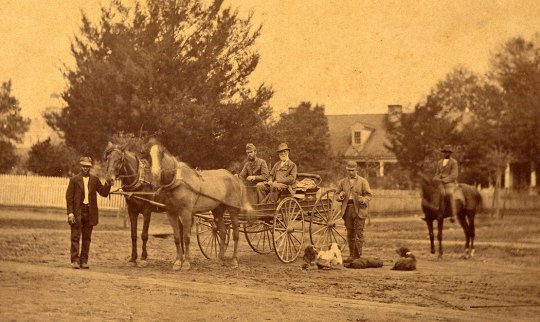
Southerners like Hopkins “basically ran these places like their fiefdoms,” said historian Hahn. “And poor white people and poor Black people were expected to bow down to them.”
These were “big families who wielded an enormous amount of patronage and either occupied local offices or had clients who did,” he said.
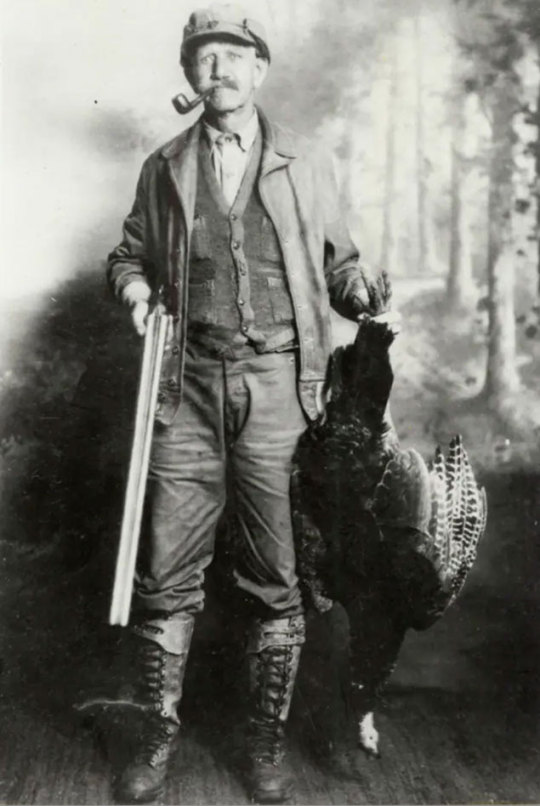
Through his law firm and real estate brokerage, Judge Hopkins “compiled, and eventually sold, almost every one of the original plantations that now are such a wonderful part of our southern life,” according to a book written by his great-grandson.
In the world Judge Hopkins helped create, the old plantations became country lodges. Well-to-do white people attended Christmas fox hunts and “fancy dress” balls where they danced the Virginia reel. Black families worked on those properties as servants and hunting guides. Part of the allure for some Northerners came in touring the homes of the county’s poorer Black residents.
“When it becomes clear that there is interest in vestiges of the old South … there’s a real sense that you can sell this,” said Julia Brock, a history professor at the University of Alabama who co-wrote a book about Thomas County and surrounding areas.
“There was a real interest in Black life,” Brock said. But that interest was in the nostalgia of the antebellum South, “not Black life as it was emerging into freedom.”
The economic success of the country-lodge plantations recaptured some of the Hopkins family’s standing as “part of a gentry,” Brock said, conferring upon him “a central place in a new social world.”
The system that now offered leisure for the wealthy still depended on Black labor, from tending dogs to driving carriages to serving supper to making sure quail nests were safe from natural predators.
It was “a feudal-type thing” for Black people, said Titus Brown, a history professor at Florida A&M University.
Brown, who co-wrote a book built around interviews with former employees of area plantations, said working on the leisure plantations was like living in a bubble. That leisure economy provided Black families with jobs and other benefits, including medical care and access to education. And it granted them “some protection, as long as they are not violating the social conduct or etiquette,” Brown said.
Judge Hopkins’ life and livelihood exemplified the nature of that social contract.
After a school for Black students burned down in a neighboring county, Hopkins donated land for a new location in Thomas County. He also connected Black people whom he knew to the white families who owned the plantations, recommending them for plum jobs.
But Hopkins had also been an early member of the Ku Klux Klan, and he sought to reassure white people that his vision for the region wouldn’t upset their primacy.
In 1905, for instance, state lawmakers debated whether to create a new county by peeling land from Thomas County and an adjacent county. Critics argued doing so would give Black residents an electoral advantage in two of the counties. Hopkins favored the move, and he testified before state lawmakers. According to The Atlanta Constitution, Hopkins “devoted his time to answering the argument of the opposition relating to negro domination,” and “closed with an eloquent reference to the fact that in Georgia the white race intended to dominate the negro race and control the government of the state, no matter how large the negro majority.” Judge H.W. Hopkins, an avid hunter, helped turn plantations into country lodges. Via Thomasville History Center
Judge Hopkins was in his 80s when sociologist Arthur Raper visited Thomasville in the early 1930s. Raper sought to explore the reasons behind lynchings in America, and two had taken place in Thomas County in 1930.
In one case, a Black man was accused of attacking a 9-year-old white girl. The man was jailed, and a mob gathered. When authorities tried to move the man to a different location, the mob wrenched him from the sheriff and told the man to run. Then they shot him repeatedly from behind.
The mob tied the man’s body to the back of a car and dragged him through town, his corpse almost hitting a pedestrian, Raper wrote. The killers did not bother covering their faces, according to Raper’s account. Still, no one came forward to identify them.
Raper wanted to learn more about the leaders of a town where such a thing could happen. Among those he interviewed was Judge Hopkins.
Hopkins and other leading citizens of Thomas County, Raper wrote, saw themselves as above poor white people. The sociologist referred to them as the “local landed aristocracy” and wrote of their paternalistic attitude toward Black people. Raper paraphrased it as: “Why you know, that fellow’s grandmother belonged to my mother’s father.”
Hopkins, he wrote, called lynchings the work of lower elements of white society: “I’ll give anybody a thousand dollars who’ll find either a son or a grandson of a slaveowner participating in a lynching.”
Raper found that Hopkins had once been a member of the Klan – using the phrase “the original Ku Klux Klan.” He was referring to the group’s first incarnation, when the Klan rose during the federal occupation of the South in the Reconstruction years. Writing in 1932, Raper said Hopkins had recently declined to join the reconstituted Klan.
Hopkins’ great-grandson later wrote of watching Judge Hopkins meet with “a group of hooded and sheeted figures” assembled on the lawn. They had come to ask him to “join in some sort of mission or action.” Judge Hopkins, according to his great-grandson, told the men to contact the police if a law had been broken. Otherwise, Hopkins told them, “you men must go home and hang up your robes for good.”
Judge Hopkins had no need to circumvent state power. He and others like him now were in control. Hopkins lived into his 90s, dying in 1945.
His great-great-granddaughter, Dina Titus, was born in Thomasville and grew up in Tifton, a town about 50 miles to the north. She graduated from the College of William and Mary, earned a master’s degree from the University of Georgia, then got a doctorate at Florida State University. She taught government for more than 30 years at the University of Nevada, Las Vegas.
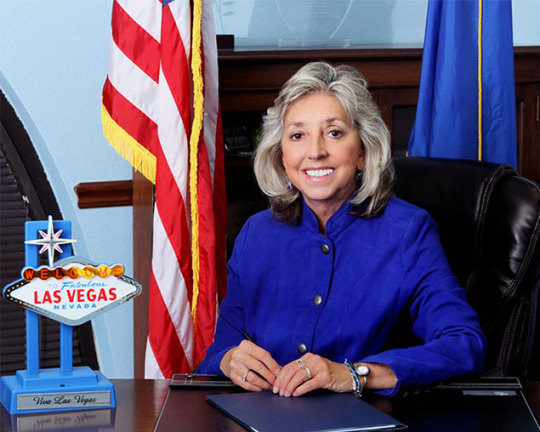
Like her forebears, she pursued a career in politics. In 1988, she was elected to the Nevada State Senate, where she served as Democratic minority leader for 15 years. In 2008, she was elected to Congress.
Disclosure forms and real estate records show her net worth at between $978,000 and $2.5 million. The median U.S. family had a net worth of $193,000 in 2022, according to a survey for the Federal Reserve Board.
The Paralyzing Debt of Sharecroppers
The farm fields of Catahoula and Concordia parishes made white men rich and Black men miserable for many years in central Louisiana. Fed by a sprawling set of waterways, Concordia’s floodplains turned into what some call “million-dollar soil,” sprouting rows thick with cotton that were flanked by towering plantation homes.
Central Louisiana is where the ancestors of U.S. Senator John N. Kennedy came to secure their fortunes. In 1840, less than 30 years after Louisiana became a state, Kennedy’s great-great-great-grandfather enslaved 120 people in Concordia Parish. His estate in 1860 was worth about $57 million in current day dollars. His ancestor’s brother, a farmer and politician, enslaved 55 people on his Mississippi land in 1860. He then used cash from that estate – worth some $68 million in today’s dollars – to buy nearly 1,800 acres in neighboring Catahoula Parish.

After the Civil War, when the Black people they had enslaved were freed, the forebears of Kennedy were never again as rich. But they remained monied and powerful – a lineage of doctors, politicians and landowners surrounded by poor Black families.
Marriages between the descendants of slaveholders further grew their holdings. Among the senator’s direct ancestors was his great-grandfather, Leonidas Calhoun, who controlled large swathes of land along or near the Mississippi River Delta.
Calhoun went to medical school in Kentucky in the 1880s, then returned to live on a family plantation in Catahoula Parish. From there, he practiced medicine and oversaw hundreds of acres of farmland in Catahoula and adjacent Concordia Parish. He died in 1903 at age 44.
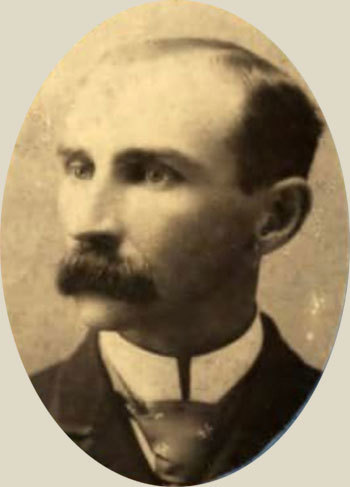
Portrait of Leonidas Calhoun. Via Facebook
At the time of his death, estate records examined by Reuters suggest that the Calhoun family was both sharecropping its land and also renting out larger tracts to tenant farmers.
In sharecropping, landholders typically gave farmers the right to live on and farm their land in exchange for a portion of the crops they produced. Farmers – those around the Calhoun land were typically Black and illiterate – often needed credit from their landlords simply to put a crop in the fields. Owners would front them everything from food and clothing to seeds and tools, typically provided at inflated prices and sold at stores on the plantations themselves.
After harvest, whatever was borrowed was deducted from the sharecropper’s earnings. In bad years, many may have owed more than they earned. Until those debts were repaid, laws forbade sharecroppers from leaving.
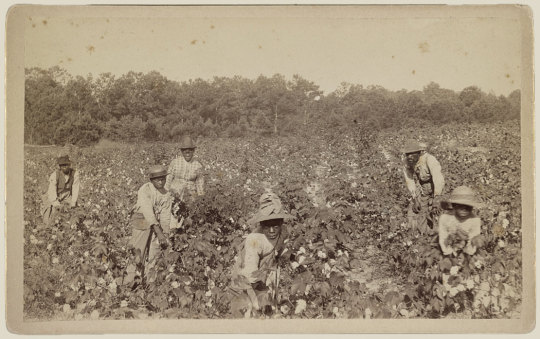
“During the end of the year, when it’s time for settlement, (landowners) would then pull out these accounting records to say, ‘Oh, you and your family almost made it out of debt,’” said Cassie Sade Turnipseed, a history professor at Jackson State University who has studied sharecropping in the Mississippi Delta.
Using the appraisal of Calhoun’s assets and matching them with census records, Reuters identified at least two Black farmers who owed Calhoun money at that time.

One was Granville Swift. Records show he owed $20 to Calhoun, and the debt was already at least six months past due. The 1900 census shows that Swift, a 23-year-old Black farmer, lived with his 22-year-old wife, who was a farmhand. Both were illiterate. Swift is also listed as a farmer in Catahoula Parish in the 1910 census, and records indicate he died there in 1918, at age 42. Reuters could find no evidence that he ever owned any of the land he farmed.
Another Black farmer who owed Calhoun money was Ben Polk. His debt was $5, according to estate records. The 1900 census for Catahoula Parish shows 49-year-old Benjamin Polk. He was listed as the head of a household with 10 other mouths to feed: his wife, eight children and one grandchild.
At some plantations, the owners issued their own scrip for use at their stores. Turnipseed, the scholar of sharecropping in the Mississippi Delta, said this meant that, even in profitable years, sharecroppers were unable “to acquire any kind of wealth because your currency would only be honored in very limited ways” on the plantation.
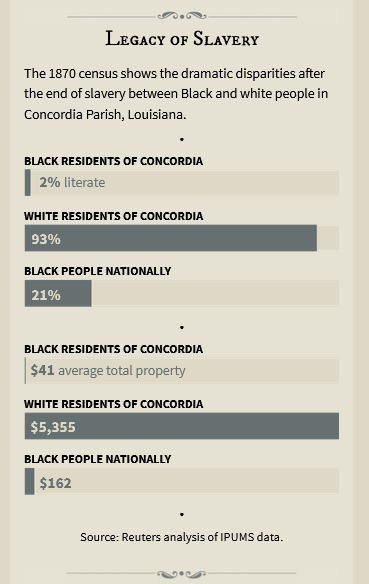
In an interview with Reuters, Ben Polk’s great-granddaughter recounted her ancestors’ description of working the Calhoun land.
Men in the family labored “sun up to sun down” in the cotton fields and had little autonomy, said Bettye Johnson, now 75. She said they were forced to buy food and goods on credit and at inflated prices in a plantation general store. Their debts often dwarfed their earnings, Johnson said.
“It was the Calhouns’ place,” Johnson said, “and they were in charge.” In the 1930 census, the occupation for Leonidas Calhoun’s son, who inherited the family land, was listed as “overseer” of a plantation.
The struggle to earn a living was intensified by violence and racial animus, some that was chronicled by the Calhoun family itself.
Legacy of Slavery
The 1870 census shows the dramatic disparities after the end of slavery between Black and white people in Concordia Parish, Louisiana.
During Reconstruction, Black residents of Concordia Parish gained power at the voting booth.
In 1860, about 91% of people living there were counted as “slaves,” the third-highest percentage of any county or parish in the United States, according to data from a recent study. After emancipation, Black people outnumbered white people in the parish 9,257 to 720.
Those figures underscore how important slavery was to families including the Calhouns, and how different the post-slavery political landscape became during Reconstruction. In the 1870s, Black men in Concordia were sheriffs and district court clerks. A formerly enslaved man was elected to the state legislature and then founded a newspaper.
A book by a local historian named Robert Dabney Calhoun, a nephew of Leonidas Calhoun, provided a window into how at least some local white people viewed those results. Black officeholders, Robert Dabney Calhoun wrote, were “illiterate, dishonest and sweating” men who carried out “unscrupulous designs.”
“Our substantial citizens were forced to engage in election manipulations,” wrote Calhoun. “They prayed for the dawning of the new day of white supremacy.”
That is what the white people of Concordia and surrounding parishes established for decades, by unleashing a deadly campaign in the 1870s.
“Lynchings, massacres, and terroristic intimidation was absolutely central to how many plantation dynasties reasserted dominance,” said John Bardes, a history professor at Louisiana State University, whose studies focus on slavery in Louisiana. “It was just horrific spasms of violence all throughout the state.”
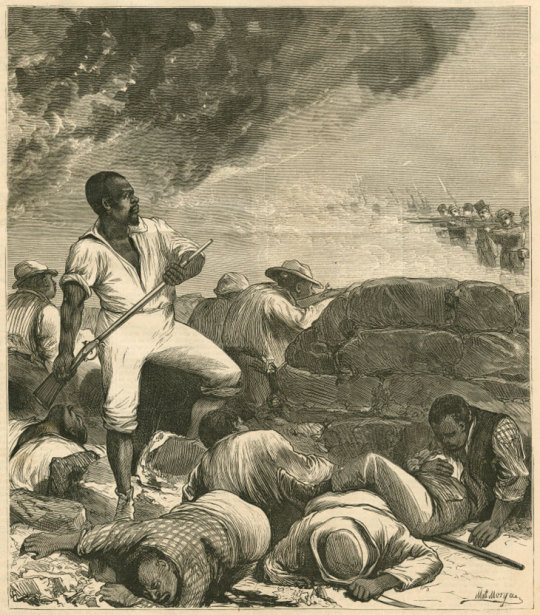
A recent report by the The Equal Justice Initiative found that Louisiana ranked third in the nation between 1877 and 1950 in what it terms “racial terror lynchings” – killings that were “acts of terrorism” outside of any legal proceedings. The state had 549 such murders in that period, the group found.
Around the time Leonidas Calhoun took control of the land in Concordia and Catahoula parishes, white people across the South had succeeded at reasserting political dominance. Another report by the Equal Justice Initiative notes that, “from 1885 to 1908, all 11 former Confederate states rewrote their constitutions to restrict voting rights using poll taxes, literacy tests, and felon disenfranchisement.”
Near the turn of the 20th century, changes in Louisiana tightly restricted who could vote. In 1897, before the changes, state records show 164,088 registered white voters and 130,344 registered Black voters. After the changes, records show 125,437 registered white voters and just 5,320 registered Black voters in 1900. The year after Leonidas Calhoun died, the number of registered Black voters across all of Louisiana had dropped to 1,718.
Today, the great-grandson of Leonidas Calhoun is the junior U.S. senator representing Louisiana. John Neely Kennedy – his middle name is the surname of two of his slaveholding ancestors – was president of his senior class at Vanderbilt University. He graduated from the University of Virginia School of Law, and earned a degree in civil law from Oxford University in England. Before being elected to the Senate in 2016, he spent five terms as Louisiana’s treasurer.

Real estate records and Kennedy’s latest public financial disclosures show his net worth is between $8.3 million and $22.6 million.
Kennedy doesn’t live in either Concordia or Catahoula parish. But after his mother died, he was named as one of the inheritors of her estate. Among her possessions listed in a 2005 probate document was hundreds of acres in Catahoula – family land that once belonged to one of Kennedy’s slaveholding ancestors.
Slavery’s Descendants
PART 1
America’s Family Secret
INTERACTIVE
Explore The Ties To Slavery
PART 2
“The Slaves Built That”
PART 3
“All We Are is Memory”
PART 4
American Dreams
PART 5
The Crown, the Cabinet and the UK’s Legacy of Slavery
PART 6
Heirs of Power
7 notes
·
View notes
Text
Erasure wasn't about how white people perceive black people as much as it contemplated how black people conceive of and present themselves, and those who look like them. It’s an interrogation of the performance of identity and the implication of audience, and how both serve to reduce and ultimately erase an individual’s dignity and humanity. A crucial scene in the novel finds Monk in the waiting room of his sister’s clinic, underestimating the intellectual capacity of a woman implied to be a lower-class single mother, with “curling, blue fingernails.” She’s a high-school dropout, but she discusses Their Eyes Were Watching God and Cane with a poignancy that shames Monk for his narrow assumptions about her. The point of Erasure isn’t that we need more books and films about upper-middle-class black people, but that any book or film worth a damn needs to confer humanity and dignity on its subject, regardless of their station in life. Any real art finds its level by meeting humans and life on their own terms. In place of that sort of probing, American Fiction gives you a movie about angst and love, a fantasy of good negro life so mired in sentiment it has no politic but the simplest judgment of the most obvious racism we can all agree is bad, and no depth outside of what we all need is more love in our lives. Implicit in a film like this—as with so much of the cinema, literature, and non-fiction by and about black people that has emerged post-George Floyd—is a participation trophy for the white, liberal audience: Kudos to you for watching; go tell a friend. Assuage your guilt for the price of a ticket; you're the good guys, after all.”
Jason England - ‘American Fiction’ And The Wet Eyes Of The Sentimentalist (2024)
3 notes
·
View notes
Text
WRITING BIPOC’S INTO PERIOD PIECES
It was certainly a struggle as a black writer to write someone like me into not only fandom that I like but one where the lack of representation for not just black people, but people from other cultural backgrounds pretty much don’t exist.
So I’ll break down this little rant by talking about two of my books, from separate fandoms.
Here we go…
—
A DARK TWISTED FANTASY
I know many people have watched the vampire diaries and immediately jump to write about how Bonnie was treated badly by the writers and was made into the “token” and “magical negro” of the show, which is why I had to think long and hard about how I wanted to write my main oc and how I wanted her to be perceived. It’s hard as a POC in general searching through books on wattpad, tumblr, ao3 and so on to find something that’s for me, so I just decided to write a tvd fic, but not just a tvd fic, but with klaus mikaelson as the love interest.
Listen, I love Klaus as a character, but his flaws are never-ending. Not only is the man abusive (physically and mentally), narcissistic, controlling and spiteful but he also tends to throw around the fact he saved Marcel from slavery constantly throughout the originals.
Which of course I didn’t fully realise until I started publishing my story (ADTF). Don’t get me wrong I love writing my oc alongside him but that isn’t a flaw I could just ignore, especially considering the era she’s born in.
For those who don’t know, Adrienne Lumiére is a grey witch (dark witch by some definitions) who was recently made queen of the witch faction in NOLA because of the sudden death of her mother. Oh… did I forget to mention she’s a dark-skin, eighteen year old who’s being courted by Klaus Mikaelson in 1917?
You see the problem I had when was writing?
Well, since I didn’t want to write a canon tvd book where the same thing happens, Klaroline, Esther returns, Klaus wants his hybrids… bla bla bla, I settled with a period piece set when the Mikaelsons were ruling over NOLA before Mikael came along and burn down their accomplishments to the ground. I wanted to give a new take and I did, but trying to balance a somewhat “healthy relationship” between Adrienne and Klaus during this time and how he is when it comes to race was challenging.
Reading the book, you might see him being “colour blind”, believing that because she’s a powerful being, it eradicates most of the struggles she had to face due to her race… classic Klaus right? I mean it’s only right to portray him in such a way because that’s how he is. He might acknowledge her race and strongly hate anyone who is prejudiced towards her but it doesn’t mean he fully understands nor could he ever.
And no, him adopting Marcel doesn’t mean he single-handedly erased racism, him “saving” Marcel in my opinion had little to do with his race and more to do with Marcel’s actions leading up to Klaus noticing him. You know… marcel rightfully throwing an object at his slave owner (defending himself) making Klaus see “himself” in Marcel.
Therefore I write klaus, how I view him to be most of the time as “colourblind.”
Now onto, “how writing Adrienne sometimes can be challenging.”
It is challenging because even though I would love to write her into a space where her struggles as a black woman ( a young one at that) wouldn’t exist, it would be a lie. I also feel like mentioning even it a little is triggering but if I chose to ignore it wouldn’t be doing the book justice. Of course, I try not to over indulge because it’s a fictional character, being written into a fictional world, but I still want to keep my character realistic, so I incorporate how black woman styled their hair back then, how they would dance, the professions they might have (even embellishing a little) and the family dynamics.
Her physical relationship with Klaus is shown a lot —but behind closed doors and that’s for a reason. You see interracial relations were illegal and despite Klaus’ ignorance most of the time, he knows that and wouldn’t risk Adrienne’s safety (because of his fear of his lover dying, leaving him, or being killed because of him… and so on leaving him lonely and even more destructive) so they keep their touches in public to a minimum, but in private, you know how they are.
I know some parts of Adrienne's story might be very unrealistic, but I am leaning into her supernatural status a little just so she can live a little lavish… come on, Adrienne deserves the world and honestly, I’m glad I chose the 1910s to write her into, of course, nothing was okay, or even right back then, but it’s fiction, it’s escapism and I want people to have fun when reading about her and how her family contribute to NOLA back then.
I love Adrienne and even though writing to her with Klaus can be very exhausting, it’s quite fun sometimes.
(And yes I will finish the story before anyone asks, but don’t ask when I’ll be updating)

—
UNTIL WE MEET AGAIN
Eden Dawkins is my other original character set in the 1900s, but this time in Birmingham as a twenty-year-old brown skin nurse currently dating Tommy Shelby before he goes of to war.
For some reason I found this story to be easier, it might have had something to do with the lack of supernatural elements but still, I did a lot of research not only for black people back in 1914 but also the English/Irish and Romani traveller culture during this time also. (beliefs, family values, etc.)
considering that Tommy (who's played by cillian murphy) is constantly looked down on by his enemies and plenty of others because of his background I had to think about how my girl Eden would be seen. although we do see reoccurring characters like Jeremiah (played by Benjamin Zephaniah) and Isaiah Jesus who are a black father and son that were heavily involved with the Peaky Blinders, do experience racism but luckily it wasn't their entire character portrayal, although I did wish they were fleshed out more.
so when I started writing about Eden, who is in a relationship with not only a small-town gangster, I needed to access her views on violence and if she was okay with it. crime was notorious, especially in small heath, no one was rich and the working class were the majority. in the show of peaky blinders, theft, loitering and drug dealing were common. the entire show is based around criminal activity and how the Shelbys used it to their advantage to get themselves to the top.
since my story is set in 1914, the Shelbys, I believe were starting up the betting shop and did already have some sort of reputation for being people not to be messed with, I wanted Eden to already be aware of them. I decided that she would be the same age as John and even be friends with him during school. since she is the god-sibling to Isaiah (and he's besties with Finn) I wanted her and the little 5-year-olds to be close, so that's another tie she has to the Shelbys, meaning Tommy can’t miss her.
he didn't and if you've read the prologue it's known that he's been obsessing over her for a while.
back to Eden... she's a nurse, it was common to be back then and was also an easier profession to get in than it is now. it was also common for many people who were getting treated in hospitals to turn away help from black/brown nurses and doctors due to their prejudice, this is a fact that I mention in my book, in a sly and occasionally jokey way. Eden's mother Celestine is a matron; a title belonging to a nurse of higher status and more experience. Celestine had been a nurse for 20 years.
Eden's been a nurse for at least a year and since she tends to operate with needles, I made sure her defences are knives instead of guns. IT'S FANFICTION GUYS. I know it isn't accurate but she's dating a gangster, lives on a chaotic street and is surrounded by normalised crime, she needs to defend herself somehow and you'll soon understand why she doesn't use guns.
when writing a black character I sometimes forget that it is okay for them to be the opposite of the "strong" stereotype that many portray us to be. Eden is a very emotional person, she's in touch with her feelings and knows she can also let them run her to the ground.
taking this into account, you might ask, "How does Eden react to Tommy's actions?"
to summarise how she would, if it's affecting her or the people she loves or anyone innocent, she has a problem and lashes at him, however, if it doesn't affect her at all, she'd let it slide.
you'll see more of that in a short story.
the black girl experience is also included just like I did with Adrienne.
also, Tommy and Klaus... I see that they do share similar traits, even when it comes to their families, but I won't go into that too much, however, I do want to say that the main difference between Tommy and Klaus and how they react to the race of their partner is I feel like Tommy would be and is more aware of it.
Tommy knows Eden's black and doesn't ignore it or act colourblind, but you know he's very forward-thinking as well as dangerously ambitious, but fortunately, that side of him doesn't kick in until after the war.
…well we can only hope.
a/n:
does this make sense? I really can’t tell.

#wattpad#fanfic#adriennelumiere#black girl#black reader#klaus mikaelson x black reader#klaus mikaelson#witch#klaus mikaelson x reader#klaus mikaleson imagine#tommy Shelby#tommyshelby#edendawkins#tommy Shelby x black reader#tommy shelby fanfic#fanfiction#klaus mikealson fanfiction#black woman#young black women#1914#new orleans#birmingham#circa 1918#1920s
19 notes
·
View notes
Text
when is the appropriate time to discuss antiBlackness and why does it depend upon the convenience of white people & nonblack people of color?
⭐️ “within every group of which Black people are a part of, the nonblacks within it will fervently ignore us because they do not want to be reminded we exist.”
⭐️ “I state firmly that Black trans women/transfems are not only Captive Maternals, but are the Captive Maternals of Black feminism and queer theory. Further, Black feminism and queer theory are sustained through the airbrushing of transmisogynoir for the sake of academia.”
⭐️ “Say Her Name is trending because people are using it for Brianna Ghey, who is white, and i need y'all to understand that that phrase/hashtag was created for Black women who are victims of p*lice violence. i've seen white people say that they didn't even know this, and that's extremely troubling because that means y'all genuinely do not care about Black women, particularly Black trans women. i'm going to be very frank, one of the reasons why we aren't where we should be in terms of infrastructure fighting against transphobia is because ppl have accepted the systems that facilitate Black death because y'all have assumed it won't come for you.”
⭐️ “lol at people telling me "these white people didn't mean to be antiBlack", like wow, y'all turn into reactionaries the moment Black people stand up for ourselves.”
⭐️ “use like #HerNameIsBrianna #RememberBriannaGhey or #DignityForBrianna instead”
⭐️ “The reason SayHerName is exclusive is because without them *NO ONE* would listen to us. we say her name because no one else will. We say rest in power cause no one else lays us to rest *because of race*. These are black specific sayings for black specific violence 😵💫”
⭐️ “what's getting me is that these white trans ppl are getting told by transphobes "don't politicize her death" and correctly replying "her death is political". now they're crying that Black trans women are correctly politicizing their appropriation of a /political/ slogan. it is /political/ why Say Her Name took off in this instance rather than in the previous instances of Black trans women killed in the UK who were erased, deadnamed, and vilified in the media like Naomi Hersi in 2018.”
⭐️ “When it comes to white people & nonblack people of color co-opting terms from Black folks, especially terms that have been developed as part of collective struggle, the "we" matters. These folks are diluting a specific term with the same vague inclusiveness that you're using.“
⭐️ “nonblack people every day: be nice to the whites or we'll stop pretending to care about you negroes d-ing".”
⭐️ “a good chunk of the defensiveness over desiring the appropriation of slogans constructed to attack antiBlack violence / within the Black liberation struggle is bc of the expectation that Black ppl do this mvmt-building labour and nonblack ppl can just take these things 'readymade' after and apply them out of context. this both works to prevent shining a light on the specificity of antiBlack violence, and avoids the wider work of mvmt-building that does not depend on the embedded expectation of this kind of underclassed labour. on the contrary, a tight knit connectivity of struggles is more achievable when movements are able to acknowledge that the communities they represent are not 'topologically flat'. now is the time more than ever to build an ecosystem of counter-narrative against the bloody weight of these murderous hegemonic forces that don't have to clumsily take from each other while pretending everyone has an identical experience, but that which influence and converse with each other. so as to construct something multilateral with multiple roots and connectivities grounded in a critique of capitalist relations.” “it's because antiBlackness is ubiquitous within nation-states which makes the infrastructure our liberation struggle anti nation-state in practice, which runs counter to assimilationism. attempts to "reform" the system are attempts to restructure antiBlackness. like, things formed to address antiBlackness simply cannot be neatly mapped onto other forms of struggle on a one-to-one basis. it only appears that way because ppl know deep down that antiBlackness laces and informs struggle more broadly.”
⭐️ “one of the main reasons these white ppl are mad at me is because i reminded them that they could've been using Say Her Name for Black trans women this whole time but they haven't because they don't give a fuck about us. Black people have been noting for decades that whenever we do the work to create something with much less resources than white people, white people swoop in to capitalize off of that. if you're telling me you /need/ Say Her Name, you're admitting you /rely/ on our dispossession.”
⭐️ “not the first person to talk about or bring up the misappropriation of Say Her Name, and every time it's happened, the Black person who brought it up has been hounded and dogged for "division" and "it's not the right time". so when is the right time?”
⭐️ “white people & nonblack people of color are going so far as to claim that no Black trans women have been murdered in the UK and been deadnamed by the media like literally that very thing didn't happen to Naomi Hersi. here is an article about it and the silence about it: https://gal-dem.com/silence-failing-naomi-hersi/“ “here's Stonewall's reporting on it at the time: https://www.stonewall.org.uk/cy/node/65106”
⭐️ “Mind you, the #SayHerName Campaign was launched in 2014 by the African American Policy Forum and the Center for Intersectionality and Social Policy Studies and, as it stands, is one of the primary record keepers of Black women murdered by police.”
26 notes
·
View notes
Note
Okay I probably going to bitch next year, but this how I feel about the society of magical negroes https://youtu.be/GvM4_U9MvPk?si=IcP7aWm2nAFA5G89
Black content creators, we was doing so well, we help on the FUCKING APOLLO LUNAR MISSIONS, we created so many inventions during periods of oppression and discrimination, many civil rights activists survived to see a fucking black President into office.
But no, we (though Obama did start it) have to burn down the bridges our forebears made towards race relations because you need to justify your racist hateboner towards white peoples even in a setting where black people have magic
Also…writers do know that there regional black cultures? Like southern blacks would probably be into the voodoo stuff, hmmm black urban magic user might blend eastern magic given our urban history with Asians….
I’m thinking more than the writers who made more money by writing this movie script alone than I do in a year am I?
youtube
Black content creators, we was doing so well, we help on the FUCKING APOLLO LUNAR MISSIONS, we created so many inventions during periods of oppression and discrimination, many civil rights activists survived to see a fucking black President into office.
But no, we (though Obama did start it) have to burn down the bridges our forebears made towards race relations because you need to justify your racist hateboner towards white peoples even in a setting where black people have magic
This here is one of the big reasons why I continually say that we're going backwards from the peak of the late 90's in terms of racial issues/relations and a lot of that has to do with the media being produced and consumed.
Social media is another massive issue because honestly how fast can we see a lie that people want to believe spread once twitter gets its hands on it, and then you get the people that regardless of what the facts are refuse to shift because of a matter of pride.
Honestly though the different media that was on back there. Had stuff like Fresh Prince, Martin, In Living Colour (Waynes family owned comedy in the early/mid 90's) all kinds of non white led shows on the tv that didn't play hard into stereotypes but still managed to showcase what some of the different issues faced by the various other racial and ethnic groups without it feeling forced.
Carlton being the "wrong" kind of black man for the fraternity, that's not something a white writer could really do terribly well, but it's one of the things that seems to come up a lot irl and it's nice to put it out there for folks that may not be up on that being a thing.
Spike Lee, he ruled the 90's too, Do the Right Thing, X, even White Men Can't Jump great films showcasing the reality of life in those communities without resorting to tired stereotypes, even White Men Can't Jump since that's just kinda how the whole thing ended up till then it was solid drama even after it was still solid.
And if you wanted quality satire the previously mentioned Waynes's came in with "Don't be a Menace to South Central While Drinking Your Juice in the Hood" can't recall who did CB4, but that was good too.
Now we get

Which is incredibly weird to me considering I know who Sister Rosetta Tharpe and Big Mama Thornton are.
youtube
We really erasing Black Women's accomplishments in an effort to stick it to Whitey? How about Black Men, Chuck Berry ring a bell to anyone?
How about Current year. Please I'm begging you
youtube

Tell the Death Metal Cowboys of Botswana that they're playing white people music.
No race owns any kind of music for starters, tack in suppressing loads of talent because folks just gotta keep holding their community back for some reason.
I run into the same issue with Chris Rock's whole 'he's a dentist' bit about his neighborhood, ya it's a joke but telling your predominantly black audience that you need to be Denzel Washington to be able to reach the same heights as a run of the mill white dentist, gotta be discouraging.
Then we get the "Magical Negro's" movie, which ya it's supposed to be comedy, could do without being so ham-fisted.
Sent the trailer you shot me a few days back to a friend of mine, his response was less wordy than mine but we both landed on the same conclusion.
"So basically it's Undercover Brother but not funny"
How about we bring Sinbad out of retirement and fix that whole "Shazam" issue once and for all he can do the race stuff without being a massive ass about it, and I'd love to see him working some more, maybe we get a "Good Burger" sequel.
Not that David Allen Grier isn't funny, but damn that movie just looks awful.
14 notes
·
View notes